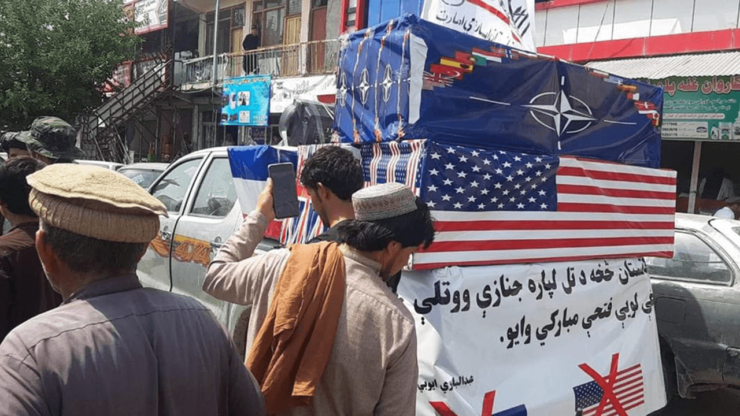
The UN Security Council held its regular meeting on Afghanistan on 6 March. The Special Representative of the Secretary-General and Head of the United Nations Assistance Mission in Afghanistan (UNAMA), Roza Otunbayeva, made a report and provided an update on political, humanitarian and human rights developments in the country since 1 December 2023.
It is recalled that UNAMA’s mandate expires on 17 March this year. This fact has prompted the UN Security Council to take action on Afghanistan, as evidenced by the consultations held in Qatar on 18 and 19 February. The meeting was organised by UN Secretary-General António Guterres to discuss the situation in Afghanistan and the international community’s interaction with the Islamic Emirate.
Notably, the Taliban movement (outlawed in Russia) declined Guterres’ invitation, citing the UN’s earlier refusal to recognise the Taliban as the legitimate government of Afghanistan. One of the key issues raised by the UN Secretary-General at the Qatar meeting was the appointment of a new envoy “to coordinate between Kabul and the international community”. Naturally, representatives of the Taliban movement rejected this idea.
An analysis of the consultations described above leads to the conclusion that Western efforts to engage in dialogue with Kabul are largely futile. This is substantially due to the West’s fixation on both the problem of forming an inclusive government and women’s rights in Afghanistan. Ignoring the need to engage with the Islamic Emirate on these issues leads to the failure of negotiations on other important issues: drug and arms trafficking, counter-terrorism and migration.
According to Guterres, the new envoy’s main task will be to “facilitate dialogue between the extremist group (the Taliban movement) and exiled opposition politicians”. Everyone knows that seeking inclusive governance in the aftermath of conflict is a standard diplomatic intervention. The idea is that inclusiveness is vital to peacebuilding because it can resolve conflicts caused by the exclusion of certain groups and prevent the resurgence of violence.
For the Afghan people, however, the term evokes unpleasant memories of the Bonn Conference that followed the US invasion of Afghanistan. As a result of the Bonn Conference, the country’s ousted warlords were given the opportunity to participate in the subsequent power-sharing, which effectively meant their impunity and led to the failure of all subsequent attempts at state-building in Afghanistan. One of the reasons for the unpopularity of this move among the Afghan people is that it was the warlords and corrupt officials in Ghani’s government who were responsible for the failure of the peace process with the Taliban.
As a result, the Taliban de facto authorities have been handed a country with a huge number of problems and threats accumulated over the years of war and financial dependency. Thus, after nearly 20 years of $2 trillion in aid and almost total dependence on international injections, Afghanistan found itself on the verge of total economic “starvation” under unprecedented unilateral sanctions and one step away from a humanitarian catastrophe.
While the West sits back and waits for the country to descend into another civil war rather than engage in constructive dialogue with the Taliban, Afghanistan’s neighbours prefer to deal directly with Kabul. Successful examples include Uzbekistan (watershed and logistics projects), China (mining), Turkey (hydropower projects and airport infrastructure), Russia, Iran and Pakistan (cooperation on counter-terrorism and illegal migration).
To date, 17 countries have diplomatic missions in Kabul. Azerbaijan was the last to officially open its embassy, but the number of states represented in the Afghan capital is sure to grow. Among the active ones, the most prominent is the aforementioned Turkey, which has never broken relations with the Afghans and has provided humanitarian aid to Kabul. Ankara also maintained exports to Afghanistan during the most difficult period for the Taliban government in 2022.
The OIC’s role as a mediator in dealing with the Taliban is also noteworthy. The organisation has the potential to address the thorny issue of Afghan women’s rights in an Islamic context for Western governments, and could be much more successful in advancing the agenda of positive reform of Afghan society towards democratisation and secularism.
In summary, the best candidate for the role of the new special envoy would be an experienced Muslim diplomat from Central Asia or Turkey. A person with such qualities could gently promote the necessary elements of a democratic society in Afghanistan, building on the capabilities of the OIC. The development of dialogue on the Eastern side could also help to curb attempts by some Western countries to reduce aid to the Afghans by imposing a series of conditions on its possible direction in pursuit of their narrow interests.
Thus, building a sustainable and long-term peace in Afghanistan is impossible without cooperation with the de facto authorities represented by the Taliban movement on a wide range of issues. This will directly determine how quickly a way out of the current impasse and the subsequent international reintegration of Kabul can be found.
Madi Khalis MAALOUF, political observer, especially for online magazine “New Eastern Outlook”